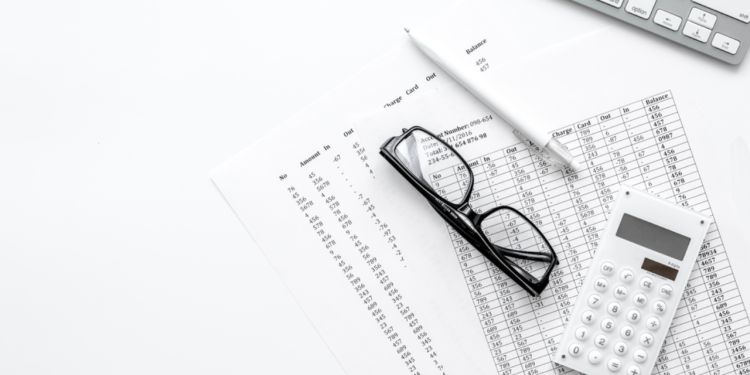
Will you have to pay taxes in Algeria? What are the taxes and rates applied? Find the answers to your queries in this article.
The Algerian tax system is vast and consists of several components. In fact, various types of taxes apply to different economic activities, namely industrial, commercial and craft activities, non-commercial professions, agricultural and livestock activities, etc. These apply to all active residents in Algeria, including foreigners. However, rates vary.
Income tax
Income tax is deducted from industrial occupations, commercial, craft and non-commercial profits, farm income, rental income and wages, salaries and other benefits.
Rates apply as follows:
- A maximum of 120,000 dinars - 0%
- Between 120,001 and 360,000 Algerian dinars - 20%
- Income between 360,001 and 1,440,000 dinars - 30%
- Over 1,440,000 dinars ' 35%.
Income tax can be settled by three methods: in installments (30% of the profit realized during the past exercise), payroll deduction and provisional taxation.
When the amount due exceeds 1,500 dinars, you have to pay it into two installments, from the 20th of February to the 20th of March and from the 20th of May to the 20th of June.
On the other hand, tax is withheld at source for salaries and wages paid by employers, non-commercial profits (income paid from abroad to beneficiaries or companies established outside Algeria) and income from movable capital. Tax must then be paid within the first 20 days of the month following the receipt of income at the nearest tax office to your place of residence. You will also have to produce a duly filled and signed tax declaration form.
Finally, the provisional tax must be paid on or before April 30th of each year. It is calculated at a proportional 10% rate which makes your eligible for the tax credit. You can have more information on this at the nearest tax office to your place of residence.
Professional activity tax
The professional activity tax applies to profits coming from industrial, commercial and non-commercial income, including production, purchase and resale companies. However, their turnover must exceed 80,000 dinars, and 50,000 dinars in the case of services. In the case of the professions, it applies to gross professional revenues amounting to more than 15,000 dinars at a 2% rate.
The professional activity tax deduction is spontaneous and can be paid on a monthly or quarterly basis. In the first case, you are required to call the nearest tax office within 20 days following the month when turnover or gross business receipts were performed. In the case of quarterly payments, it should be done within the first 20 days following the quarter during which the turnover or gross business revenue was generated.
Corporate tax
Corporate tax has to be declared at the latest on the 30th of April of each year to the nearest tax office to the company or to the tax head office. Those concerned by this type of tax have to report the company's taxable income amount relating to the previous year. Documents to be produced are a tax balance sheet including the following:
- statements of tax payment for the professional activity
- a detailed statement of payments
- documentation justifying the transfer pricing policy practiced in the context of operations, regardless of their nature.
Note that you are responsible of the tax calculation for the company before paying the amount to the tax office. This spontaneous payment is to be made in three installments of 30% each. This is to be made from the 20th of February to the 20th of March, from the 20th of May to the 20th of June and from the 20th of October to the 20th of November. Note that the payment should be accompanied by a printed and duly filled and signed tax declaration form. This document must indicate the company's name, address, vocation, accounts, the end of regulations, nature of payments, the calculation basis and the total dues amount regarding the relevant payment, etc. The liquidation will then be made on the day when you deliver the company's annual return.
Declaration of existence
Any new taxpayer engaging in a taxable activity has to report to the nearest tax inspectorate within 30 days following your recruitment. The latter will then have to fill and sign a G Series No. 8 form. Other documents such as your birth certificate, a copy of your work or internship contract, will also be requested.
Double taxation
Algeria has signed double taxation agreements with some countries. These treaties are available on the National Investment Development Agency website.
Non-residents in Algeria will be subject to different tax measures depending on their residential status. In fact, these are determined by the tax treaty signed by their home country.
Value Added Tax
The standard Value Added Tax (VAT) is deducted at a 17% rate in Algeria. However, it is specially reduced by 7% for basic foodstuff and medication. You will also pay a domestic consumption tax which applies to all consumers. It applies to beer, tobacco and matches according to their volume, as well as to certain luxury products such as salmon, coffee, or pick-ups, at a rate between 10 and 100%.
Useful links:
Directorate General of Taxes www.mfdgi.gov.dz
PKF - Algeria Tax Guide www.pkf.com
Doing Business ' Tax in Algeria www.doingbusiness.org
We do our best to provide accurate and up to date information. However, if you have noticed any inaccuracies in this article, please let us know in the comments section below.








